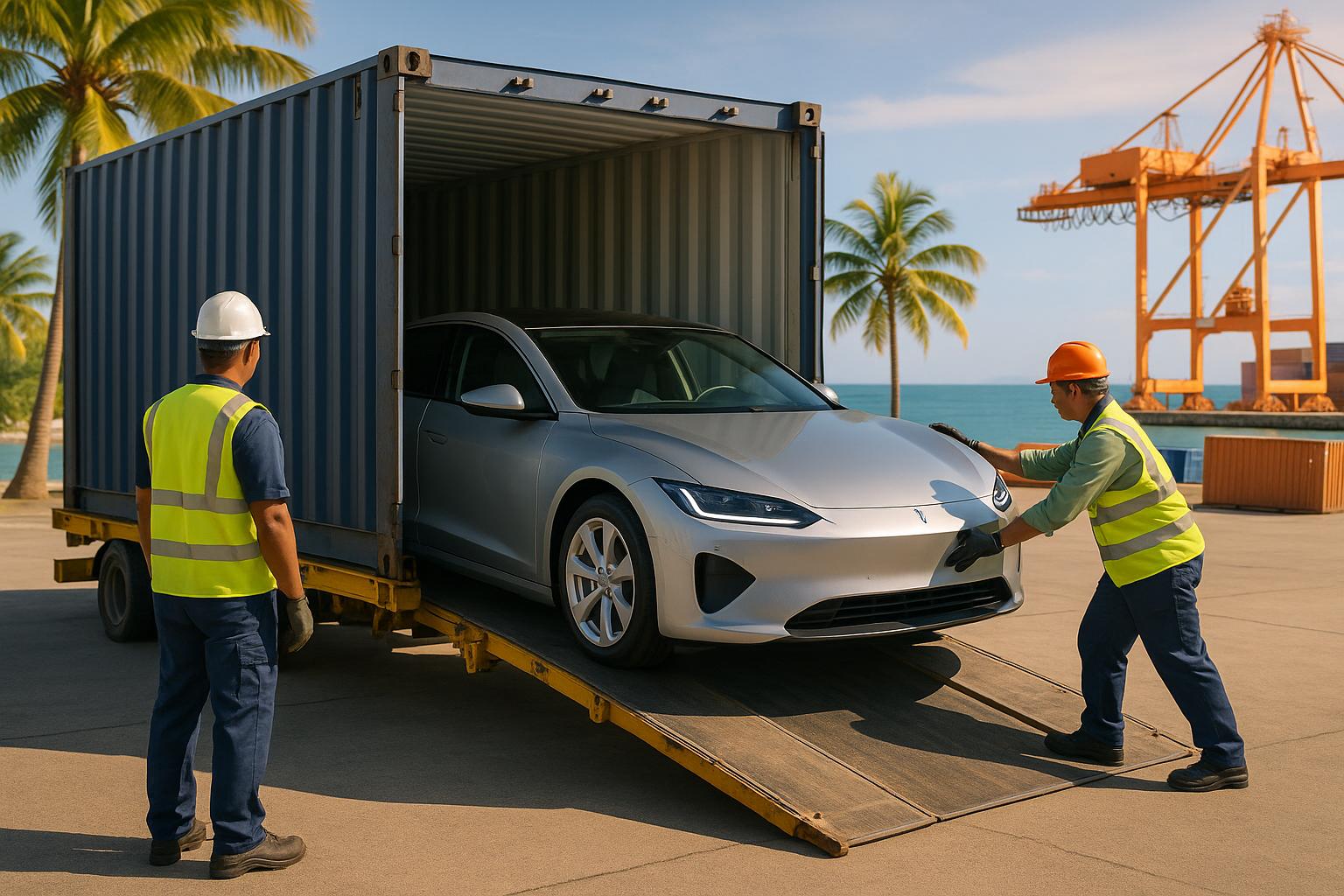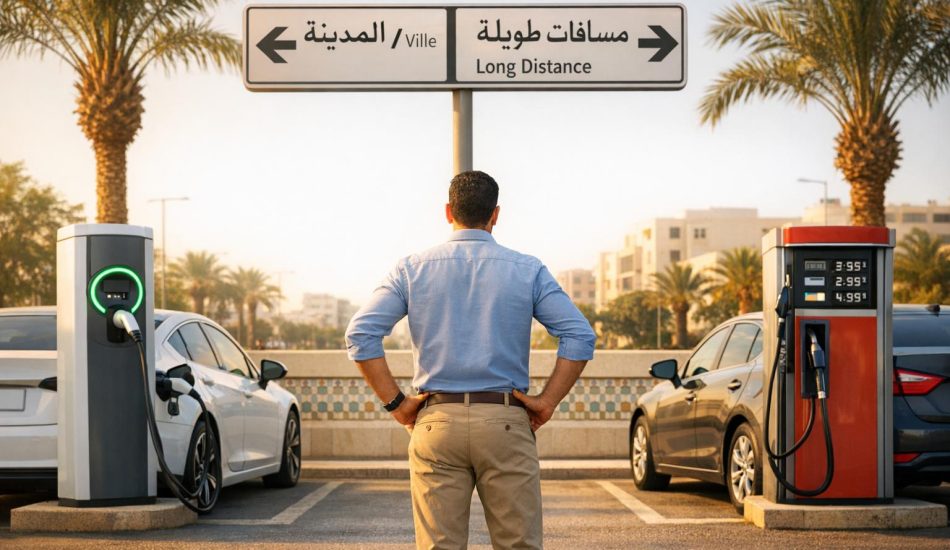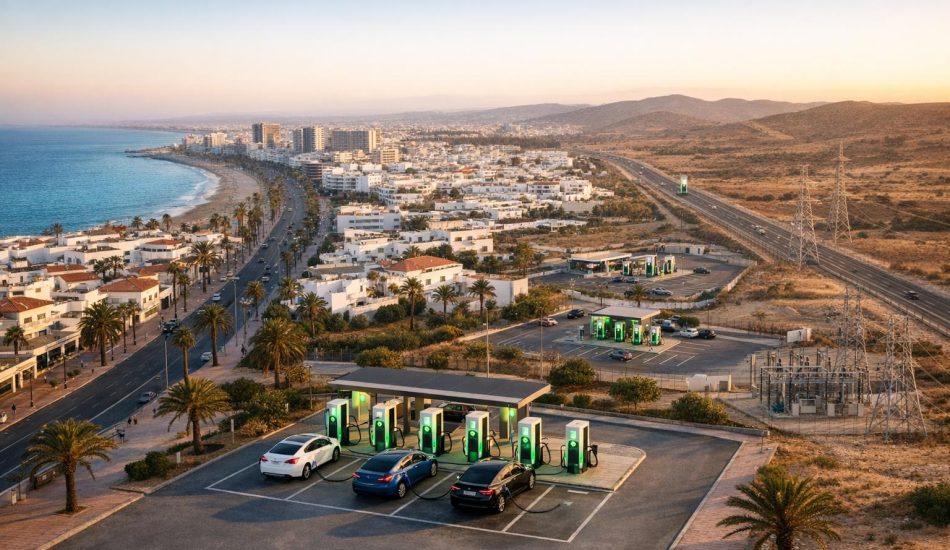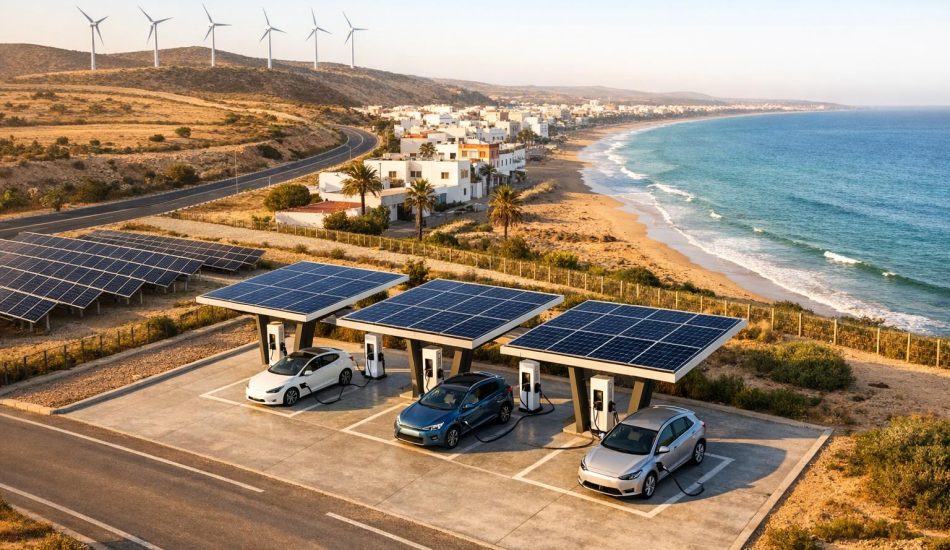
If you’re looking to import an electric vehicle (EV) into Madagascar in 2025, here’s the key takeaway: Madagascar now exempts 100% electric vehicles from VAT and customs duties, making it more affordable than ever. The government’s National Electric Vehicle Policy simplifies the process, but you’ll still need to navigate documentation, compliance, and shipping logistics.
Quick Overview:
- Tax Benefits: No VAT or customs duties for fully electric vehicles.
- Required Documents: BSC (cargo tracking), Bill of Lading, Certificate of Origin, and more.
- Vehicle Standards: Left-hand drive only; must meet specific technical and safety requirements.
- Main Entry Port: Port of Toamasina (Tamatave).
- Shipping Options: Roll-on/Roll-off (RoRo) for cost savings or container shipping for added protection.
- Financial Savings: EVs offer lower long-term costs with reduced fuel and maintenance expenses.
With a growing market for EVs and government incentives, now is an ideal time to import. Companies like EV24.africa can simplify the process with end-to-end services, including financing, shipping, and registration support. Below, we break down everything you need to know.
Madagascar‘s EV Import Regulations
If you’re planning to import electric vehicles (EVs) into Madagascar, it’s crucial to understand the country’s regulatory framework. The government has introduced policies and requirements aimed at balancing environmental priorities with practical import processes.
Government Policies for EV Imports
In September 2024, Madagascar introduced its National Electric Vehicle Policy, a significant step toward reducing the nation’s carbon emissions, boosting economic development, and encouraging the use of green technologies. With transportation accounting for 24% of emissions in major cities, transitioning to electric mobility is a key focus. The policy outlines measures to cut carbon emissions, expand renewable energy use, create jobs, and build EV-related infrastructure. These initiatives are supported by strict documentation and technical standards for imports.
One major incentive for importers is the progressive reduction of import duties. Fully electric vehicles are exempt from both VAT and customs duties, making them more financially attractive. Additionally, the Ministry of the Environment is working closely with the private sector to simplify the EV import process, demonstrating the government’s commitment to this transition.
Required Documents and Technical Standards
Importing an EV into Madagascar involves preparing specific documents. The essential paperwork includes:
- BSC (Bordereau de Suivi des Cargaisons): A cargo tracking document completed online.
- Bill of Lading or Airway Bill: Proof of shipment.
- Bank Payment Confirmation: Evidence of payment for the vehicle.
- Packing List: Details of the shipment contents.
- Import Declaration and Certificate of Origin: Verification of the vehicle’s origin.
For the vehicle itself, you’ll need the original title and registration documents from its country of origin, as well as the commercial or purchase invoice to confirm its value. Other requirements include a valid driver’s license, the Bill of Lading (BOL), and an international insurance policy (commonly referred to as a green card). Additionally, the vehicle must have a visible VIN sticker that complies with Madagascar’s standards.
Vehicle Restrictions and Standards
In addition to documentation, imported EVs must meet certain operational and technical standards. Madagascar enforces specific restrictions, such as requiring all vehicles to be left-hand drive. Vehicles powered by liquefied petroleum gas are prohibited, reflecting the government’s focus on reducing environmental impact.
Although EVs generally have a higher upfront cost compared to traditional combustion-engine vehicles, this gap is narrowing thanks to government incentives and long-term savings on fuel and maintenance. Importers must also ensure that vehicles are in good working condition and comply with age and condition standards to be eligible for import.
Step-by-Step EV Import Process
Bringing an electric vehicle (EV) into Madagascar involves a series of well-organized steps. To ensure a smooth process, you’ll need to focus on three main phases: preparing for purchase and shipment, clearing customs at the port, and completing registration with local authorities.
Buying and Shipping Preparation
The first step is preparing your EV for its journey to Madagascar. Start by consulting with a reliable shipping company to explore available routes and shipping timelines. Since most vehicles are transported via international freight, choosing the right shipping method will impact both the cost and delivery schedule.
Before shipping, take these essential steps to ready your EV:
- Thoroughly clean the vehicle to ensure it passes inspection.
- Inspect for damage – pay close attention to tires, brakes, suspension, and the battery.
- Remove personal items and non-essential accessories.
- Document existing issues with clear photos to avoid disputes later.
- For EVs, make sure the battery is charged, properly secured, and, if required, disconnected from the electrical system.
Additionally, gather all necessary paperwork, including any documents mentioned earlier, and arrange for international insurance coverage. Once these preparations are complete, you’ll be ready to focus on customs clearance.
Customs Clearance at Port
Most vehicles entering Madagascar arrive through the Port of Toamasina (Tamatave), the country’s main entry point. Here, customs officials will inspect your vehicle and verify your documents to ensure compliance with local regulations.
If you’re working with a service provider like EV24.africa, they handle the entire import process, adhering to Incoterms. For those choosing to manage the process independently, Delivered Duty Paid (DDP) Incoterms can be a convenient option, as it shifts customs duties, taxes, and other responsibilities to the seller. However, this convenience often comes with higher costs.
A significant advantage for EV importers in Madagascar is the exemption of fully electric vehicles from both VAT and customs duties. Once customs clearance is complete, inspect your vehicle immediately for any potential damage sustained during transit.
Vehicle Registration and Final Steps
After clearing customs, the next step is registering your EV with local authorities. This requires submitting original documents to the appropriate government offices. Your vehicle will also undergo an inspection by the national transport or customs authority to ensure it meets local safety and technical standards.
At this stage, Madagascar’s license plate system will be applied. The plates are black with white characters, and the first letter represents the province where the vehicle is registered. Depending on the efficiency of the offices and the completeness of your paperwork, the registration process may take a few days.
Finally, secure local insurance that complies with Madagascar’s regulations and store all your documents safely for future reference. With these steps completed, your EV is officially ready for the road in Madagascar.
Import Costs and Financial Benefits
Getting a clear picture of the costs and savings involved in importing an electric vehicle (EV) to Madagascar can help you make smarter financial decisions. Thanks to government policies supporting EVs, importing one in 2025 could be a particularly cost-effective choice.
Complete Cost Breakdown
Bringing an EV into Madagascar involves several expenses, which depend on the vehicle’s price, shipping method, and related fees. Shipping costs vary based on the route and method you choose. EV24.africa offers flexible shipping options such as Roll-on/Roll-off (RoRo) and container shipping. RoRo is typically the cheaper option, while container shipping provides added protection for your vehicle. Delivery options range from port-to-port to door-to-door services.
Other costs to consider include registration, documentation, and service fees, which depend on your selected import method. EV24.africa provides both Delivered Duty Paid (DDP) and Free on Board (FOB) options to suit different needs.
The good news? Madagascar exempts 100% electric vehicles from VAT and customs duties. This exemption significantly reduces the overall cost of importing an EV.
Tax Breaks and Government Incentives
Madagascar’s government has introduced a range of incentives to make EVs more accessible and appealing. As part of the National Electric Vehicle Policy, these measures aim to cut carbon emissions, encourage renewable energy use, and boost economic growth. Key incentives include exemptions from internal taxes and a gradual reduction of import duties on traditional, hybrid, and electric vehicles.
Looking ahead, the government plans to offer additional tax breaks, subsidies, and reduced import duties on EV parts. These measures could lower the costs of maintenance and replacement components in the future. With these evolving policies, 2025 is shaping up to be an ideal time to import an EV to Madagascar.
Long-term Cost Savings vs Gas Cars
Electric vehicles offer long-term savings that make them an attractive alternative to gasoline-powered cars. EV owners can save between 40% and 65% annually on fuel costs. Maintenance is also cheaper since electric motors require far less upkeep than internal combustion engines. Plus, EVs operate with nearly 90% efficiency, compared to just 40% for traditional gas-powered vehicles.
The falling cost of EV technology adds even more value. For example, lithium-ion battery prices dropped by 89% from 2008 to 2022. Additionally, the average price of a new EV decreased by about US$15,000 between September 2022 and September 2023. With gasoline in Madagascar costing around 21,309.65 Ar per gallon, the savings on fuel alone can be substantial. Given that transportation is often the second-largest household expense, these reductions can significantly ease financial pressures.
When you combine immediate tax exemptions, lower fuel and maintenance costs, and the rapid advancement of EV technology, the lifetime savings are impressive. Some studies suggest EV owners could save more than US$10,000 compared to owning a similar gasoline vehicle. For EV owners in Madagascar, these benefits – paired with the elimination of import taxes and duties – offer both immediate and lasting financial advantages.
How EV24.africa Helps with Madagascar Imports

EV24.africa makes importing electric vehicles (EVs) into Madagascar easier by offering a dedicated platform that guides you through the entire process – from selecting a vehicle to final delivery. Their services are designed to provide comprehensive support, ensuring a smooth experience for African EV imports.
Browse EVs on EV24.africa
The EV24.africa platform serves as an easy-to-navigate online marketplace where you can explore a variety of electric vehicles. Each listing includes detailed specifications and transparent pricing in U.S. dollars, making it simple to compare options. Whether you’re looking for a new or used EV, the platform offers a wide range of choices from global suppliers. You can filter your search by make, model, range, and other features, helping you find the perfect match.
With clear pricing information, including vehicle costs and potential shipping expenses, planning your import budget becomes straightforward. This comprehensive inventory also supports flexible financing options and efficient logistics, making the process even more accessible.
Financing Options and Delivery Services
Recognizing the high upfront costs of EVs, EV24.africa provides financing plans tailored for Malagasy customers. These include installment payment options and partnerships with local financial institutions, helping to reduce financial barriers for individuals and businesses alike.
When it comes to shipping, EV24.africa offers flexible delivery options, including door-to-door or port-to-port services, typically through the Port of Toamasina. Their extensive delivery network ensures your vehicle arrives securely and on time. Depending on your needs, you can choose between cost-effective RoRo (Roll-on/Roll-off) shipping, which allows for quicker loading and frequent departures, or container shipping, which provides added protection and the option to include extra cargo.
Additionally, you can select from two service levels:
- Delivered Duty Paid (DDP): EV24.africa handles customs clearance, registration, and import procedures, offering a hassle-free experience.
- Free on Board (FOB): For those who prefer more control over the process, this option covers the cost of the vehicle and its transportation to the shipping port.
These tailored financing and delivery services ensure a seamless import experience, building trust and paving the way for ongoing support.
Customer Feedback and After-Purchase Support
EV24.africa features verified reviews and testimonials from customers who have successfully imported EVs to Madagascar. These firsthand accounts provide valuable insights into shipping timelines and how the vehicles perform under local conditions, helping prospective buyers make informed decisions.
The platform also extends its support beyond the purchase. Maintenance assistance, warranty claims, and access to a network of local service providers are all part of their after-sales services. To help new EV owners get the most out of their vehicles, EV24.africa offers educational resources, troubleshooting guides, and detailed case studies. These materials not only highlight the benefits of switching to EVs but also address common challenges and outline the step-by-step import process.
In addition, EV24.africa stays up to date with Madagascar’s EV policies and government incentives. Their team of over 200 professionals, spread across five African countries, monitors regulatory changes to provide customers with the latest guidance – helping them maximize savings and navigate the import process effectively.
"At EV24.africa, we simplify the process of importing and buying electric vehicles in Africa. Our expertise ensures a seamless, transparent, and stress-free experience, so you can focus on driving the future of mobility."
sbb-itb-99e19e3
Tips for Smooth EV Imports
Importing electric vehicles (EVs) to Madagascar can be a straightforward process if you prepare thoroughly, choose reliable shipping partners, and stay informed about regulatory updates. Here’s how you can navigate the process effectively and avoid unnecessary delays.
Get Your Documents Ready Early
Proper documentation is the backbone of a smooth import process. In Madagascar, missing even a single required document could leave your EV stuck at the Port of Toamasina for weeks, leading to avoidable costs and frustration.
Start by gathering all essential paperwork well in advance. This includes the vehicle purchase agreement, certificate of origin, bill of lading, insurance documents, and any necessary inspection or certification reports. If any of these documents are not in French or Malagasy, secure certified translations – customs officials are unlikely to accept untranslated paperwork.
To safeguard your documentation, make multiple copies in both digital and physical formats. Store digital versions in secure cloud storage, and keep physical copies in separate locations during travel. This added layer of security ensures you’re prepared in case any documents are misplaced or damaged during transit.
Proactively reach out to Madagascar’s customs authority at least 30 days before your shipment. This will allow you to confirm the latest requirements, as import regulations can change with little notice. Once your paperwork is in order, focus on selecting a trustworthy shipping company to ensure your EV arrives safely.
Use Tracking Tools and Reliable Shippers
The shipping company you choose plays a critical role in the success of your EV import. Look for transporters with experience handling electric vehicles, especially those knowledgeable about lithium-ion battery safety and storage requirements.
Ask detailed questions about their protocols for managing EV batteries and whether they offer temperature-controlled transport options. Proper climate control and careful handling during transit are essential to prevent battery damage, which could void warranties or lead to costly repairs.
Customer reviews can provide valuable insights into a shipper’s reliability and service quality. Additionally, prioritize companies that offer real-time tracking systems. These tools allow you to monitor your vehicle’s location and estimated arrival time, making it easier to coordinate customs clearance and final delivery in Madagascar.
Pairing a reliable shipper with thorough preparation will help you avoid logistical headaches. But staying informed about Madagascar’s evolving EV regulations is equally important.
Stay Current on Rule Changes
Madagascar’s government is actively promoting sustainable transportation, which means EV policies, including tax exemptions, are frequently updated. Staying on top of these changes is vital for a successful import process.
Regularly check official communications from the Ministry of Economy and consult customs brokers for the latest updates. Joining online communities or forums where other importers share experiences can also provide early warnings about new requirements or procedural changes.
For added peace of mind, maintain regular contact with customs brokers or import specialists at Madagascar’s ports. Their on-the-ground knowledge can help you anticipate potential changes and adjust your plans accordingly. Since rule changes can happen quickly, keeping a flexible timeline and budget will help you adapt to any surprises.
Conclusion
Successfully navigating the import process for electric vehicles (EVs) in Madagascar requires a well-thought-out strategy and a solid understanding of the country’s framework for sustainable transportation.
The Malagasy government’s dedication to eco-friendly transport has made importing EVs more straightforward than ever. With policies designed to encourage sustainability, the process is now more favorable for individuals and businesses alike.
Preparation is the cornerstone of a smooth import experience. Ensuring all required documents are ready ahead of time can help you avoid unnecessary delays and extra costs, such as storage fees during customs clearance. Starting early is key to keeping the process efficient and hassle-free.
Madagascar’s National Electric Vehicle Policy underscores its dual focus on environmental preservation and economic growth. With transportation accounting for 24% of emissions in major cities, every EV imported contributes to cleaner air and lower carbon emissions. The rise of electric rickshaws in Antananarivo is a promising sign of the country’s shift toward sustainable mobility.
Companies like EV24.africa simplify the entire process by offering expert import services, flexible financing options, and reliable delivery. Their end-to-end support – from choosing the right vehicle to ensuring it reaches you – removes many of the traditional challenges associated with EV ownership. This comprehensive approach benefits Madagascar’s 29.6 million residents, making sustainable transportation more accessible.
Ultimately, success in importing EVs to Madagascar hinges on careful planning, working with trustworthy partners, and staying up-to-date on regulations. By following the steps outlined in this guide, you’re not just acquiring a vehicle – you’re playing an active role in Madagascar’s journey toward a cleaner, more sustainable future. Each EV imported is a step closer to improving air quality and reducing the island’s carbon footprint.
FAQs
What technical and safety standards must electric vehicles meet to be imported into Madagascar in 2025?
Importing an Electric Vehicle into Madagascar in 2025
If you’re planning to bring an electric vehicle (EV) into Madagascar in 2025, there are some important rules to keep in mind. First, the EV must meet stringent safety and technical standards, including internationally recognized battery safety protocols and performance benchmarks. Another key requirement is that the vehicle must be less than 10 years old and compatible with Madagascar’s electrical infrastructure.
In addition to these technical specifications, imported EVs must comply with the country’s safety and hygiene regulations. Importers will also need to provide essential paperwork, such as cargo tracking information, to streamline the customs process. Sticking to these rules is essential to ensure your EV is cleared for importation.
How does the VAT and customs duty exemption affect the cost of importing an EV to Madagascar?
The VAT and customs duty exemption can drastically cut down the expense of importing an electric vehicle (EV) into Madagascar. Typically, import taxes and duties could inflate the cost of a vehicle by an additional 10–20%. Thanks to these exemptions, those extra costs are either minimized or completely removed, making EVs far more affordable for importers.
This initiative doesn’t just ease the financial burden for importers – it also aligns with Madagascar’s efforts to embrace cleaner transportation options, promoting the use of environmentally friendly vehicles.
What steps should I follow to ensure my electric vehicle meets import requirements in Madagascar?
To import your electric vehicle into Madagascar, you’ll need to make sure everything is in order, starting with the required documents like the Cargo Tracking Document (BSC). It’s also essential to confirm that your EV aligns with the country’s technical and safety standards. Once you’ve gathered the paperwork, government officials will conduct a documentary inspection to verify compliance.
Following these steps carefully can help you sidestep delays and make the import process as smooth as possible.




